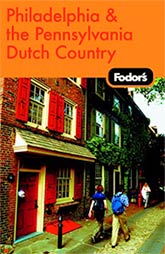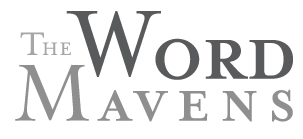 BEN FRANKLIN’S SPARK
BEN FRANKLIN’S SPARK
by Joyce Eisenberg
Fodor’s Philadelphia & the Pennsylvania Dutch Country 2006
Unlike the bronze statue of William Penn perched atop City Hall, the marble likeness of Benjamin Franklin is cloistered within the Franklin Institute Science Museum. Perhaps that’s as it should be: noble-born Penn above the people and common-born Franklin sitting more democratically among them.
Franklin (1706–1790) was anything but a common man. In fact, biographer Walter Isaacson called him “the most accomplished American of his age. “Franklin’s insatiable curiosity, combined with his ability to solve his own problems, inspired his invention of bifocals, an odometer to measure postal routes, a ”long arm“ to reach books high on his shelves, and a flexible urinary catheter for his brother who was suffering with kidney stones. His great intellect inspired his launching of the American Philosophical Society, the oldest learned society in America. He was the only ”Founding Father“ who shaped and signed all of the nation’s founding documents, including the Declaration of Independence, the Constitution, and treaties with France and England. He was a citizen of the world—a representative in the Pennsylvania General Assembly, a minister to France.
It’s fortunate for Philadelphians that Franklin spent so many of his 84 years here. That might have been an act of fate or early recognition that ”time is money,“ as he wrote in Advice to a Young Tradesman in 1748. Born in Boston in 1706, Franklin ran away from home and the oppression of his job as a printer’s apprentice at his brother’s shop. When he couldn’t find work in New York, he didn’t waste time; he moved on to Philadelphia. Within 10 years Franklin had opened his own printing office. His Pennsylvania Gazette was the most successful newspaper in the Colonies; his humor propelled his Poor Richard: An Almanac to best-seller status in the Colonies. In Franklin’s Print Shop in the Franklin Court complex, site of Ben’s first permanent home in Philadelphia, you can get a letter handstamped with a B. Free Franklin cancellation.
Before and after his retirement from the printing business, Franklin had time and passion for civic duties. As Postmaster, he set up the city’s postal system. He founded the city’s first volunteer fire company and its first subscription library (the Library Company of Philadelphia). After his famous kite experiment, he opened the first fire insurance company (The Philadelphia Contributionship for the Insurance of Houses from Loss by Fire). He proposed the idea for the University of Pennsylvania and personally raised money to finance Pennsylvania Hospital, the nation’s first.
Though Franklin spent the majority of his later years in Europe, he was laid to rest alongside his wife, Deborah, and his son, Francis, in the Christ Church Burial Ground in the city that he called home.
January 17, 2006, marks the 300th birthday of Philadelphia’s most beloved historical figure. The city that honored him with a parkway, a bridge, a football stadium, a science museum, and a mall has planned a year-long celebration that includes debates, theater performances, parades and other special events. An international exhibit, “Benjamin Franklin: In Search of a Better World” will debut in Philadelphia at the National Constitution Center on Dec. 15, 2005 and run until April 30, 2006 before traveling through the United States and to Paris.
